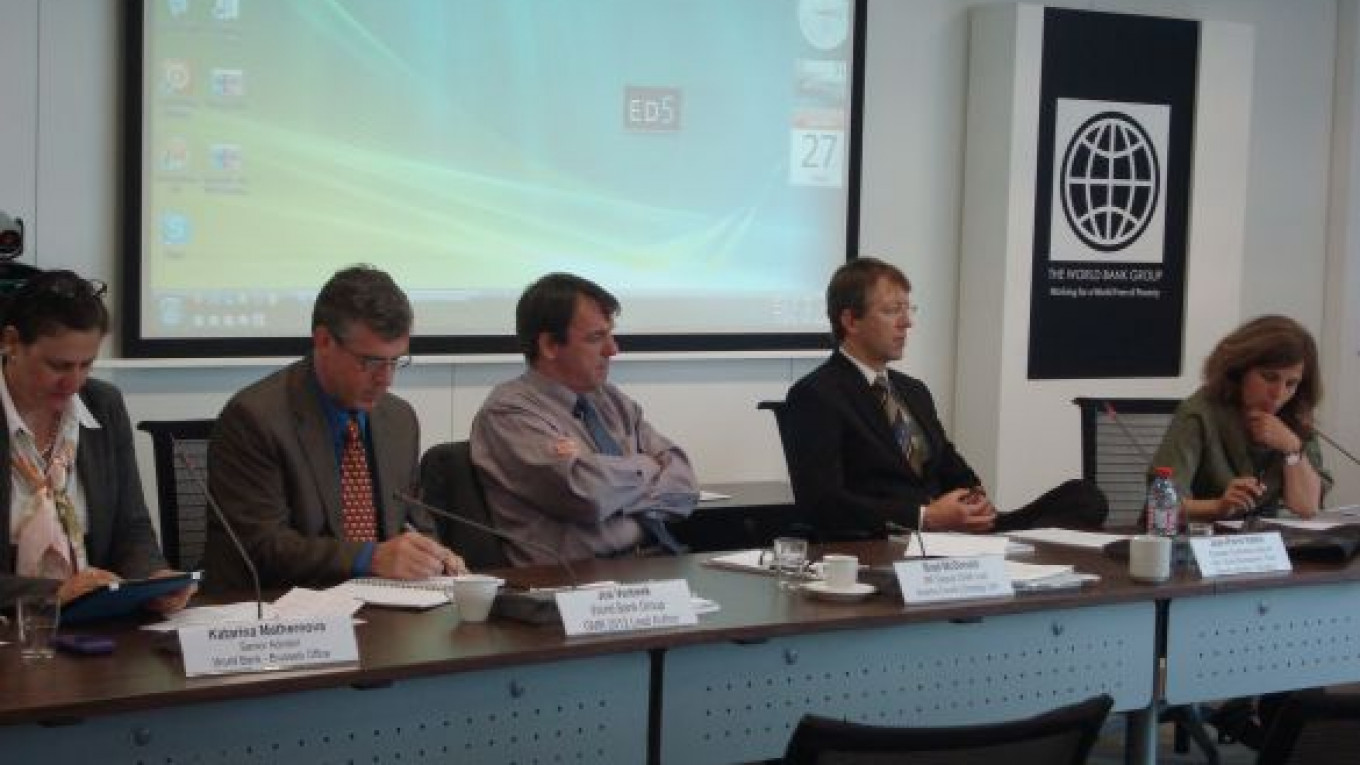Despite near-record oil prices, the Russian economy is expanding at its slowest pace in 15 years, excluding the 2009 and 1998 recessions, the World Bank said Monday.
Economic growth forecasts have been cut to just 3.5 percent this year and 3.6 percent in 2013, the bank said in a biannual report. Last year, it predicted 3.9 percent growth for 2012.
"That's a very low growth rate given the last decade and a half," Kaspar Richter, the bank's chief economist in Russia, told reporters.
The downward revisions contained in the Russian Economic Report reflected slowing domestic demand, a poor harvest, flaccid investment and a volatile global economy.
"Whereas earlier in the year, growth was rising and inflation declining," the report said, "now growth is declining and inflation rising."
The predicted drop to 3.5 percent growth compares with the 4.3 percent growth recorded last year and comes despite buoyant oil prices.
Oil prices averaged $104 a barrel last year and are expected to rise slightly to an average of $105.70 a barrel this year and $105.80 in 2013, the World Bank said.
The expectation of faltering growth comes on the back of a 4.5 percent expansion in the first six months of this year, which made Russia stand out globally.
"Russia, in a sense, has delinked itself from a slowdown in the global economy," Richter said.
Much of the expansion, dependent on solid consumer demand, has been built on an 11 percent increase in real wages in the first half of this year, the World Bank said.
Nonmarket wages, mostly in the state sector, increased even more rapidly: 20 percent between January and July.
Salaries were boosted for the majority of state employees in late 2011 and early 2012 as then-Prime Minister Vladimir Putin campaigned to win a third presidential term.
"It is a labor market that is very good for workers," Richter said. Unemployment shrank in August to its lowest level in two decades, according to the report.
Underwritten by low inflation in food prices, the poverty rate also struck record lows, at 17.7 million people in the first half of this year, down from 21.1 million in the year-earlier period.
But inflation is expected to pick up toward the end of the year, as the summer drought pushes food prices higher, delayed increases in utility rates begin to bite and core inflation grows.
Inflation will rise to between 6.5 and 7 percent by year's end, the World Bank said.
With the interbank market rate, current inflation of 6.6 percent means that "at this point in Russia, in the short term, you have a negative real interest rate," Richter said.
Related articles:
A Message from The Moscow Times:
Dear readers,
We are facing unprecedented challenges. Russia's Prosecutor General's Office has designated The Moscow Times as an "undesirable" organization, criminalizing our work and putting our staff at risk of prosecution. This follows our earlier unjust labeling as a "foreign agent."
These actions are direct attempts to silence independent journalism in Russia. The authorities claim our work "discredits the decisions of the Russian leadership." We see things differently: we strive to provide accurate, unbiased reporting on Russia.
We, the journalists of The Moscow Times, refuse to be silenced. But to continue our work, we need your help.
Your support, no matter how small, makes a world of difference. If you can, please support us monthly starting from just $2. It's quick to set up, and every contribution makes a significant impact.
By supporting The Moscow Times, you're defending open, independent journalism in the face of repression. Thank you for standing with us.
Remind me later.







